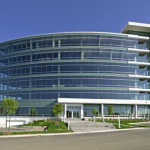 Infrastructure and natural resources have found favor with investors in recent years, and a flurry of funds have been issued to capitalize on the rapid development in emerging markets such as China, India and Brazil.
Infrastructure and natural resources have found favor with investors in recent years, and a flurry of funds have been issued to capitalize on the rapid development in emerging markets such as China, India and Brazil.
The prospect for this space looked very bright a few years ago after Brazil was awarded the 2014 Soccer World Cup and 2016 Olympics and India announced it will spend more than $1 trillion to build new infrastructures. The performance of this sector however, remained mixed with broad-based funds such as the iShares Global Infrastructure ETF (IGF) trading like defensive funds, and the emerging market funds exhibiting more volatility than their developed-market counterparts.
Nevertheless, infrastructure across many developed countries, including the US, needs to be upgraded and with the US Fed likely to continue with its loose monetary policy till growth picks up, firms in this niche are expected to remain busy for a long time.
Furthermore, Tokyo’s recent successful bid to host the 2020 Olympics bodes well for this sector as it will result in 2.96 trillion yen ($30 billion) of new businesses and 150,000 jobs for the world’s third-largest economy.
FlexShares, the ETF issuing arm of Chicago-based Northern Trust Investments, has launched a global equity infrastructure fund that aims to capitalize on the economic growth in developed as well as emerging markets.
The newly-launched FlexShares STOXX Global Broad Infrastructure Index Fund (NFRA) tracks the STOXX Global Broad Infrastructure Index and holds companies that derive at least half of their revenue from the ownership, operation, development, financing or construction of infrastructure assets, including energy utilities, satellite and wireless communication, transportation (including air, rail, road, passenger and waterway transportation), data centers, hospitals, correctional facilities and postal services. In all, the portfolio consists of about 150 firms and is well diversified with a heavy bias toward large caps.
The top five individual holdings include AT&T (4.2 percent), Vodafone (4.05 percent), Verizon (3.26 percent), Canadian National Railway (3.19 percent) and Union Pacific Corp (3.19 percent). Country wise, the US gets the maximum exposure with nearly 40 percent allocation, followed by Japan, the UK and Canada.
Infrastructure companies have typically shown low correlation to other sectors of the global economy. Hence, NFRA investors who are seeking a defensive play with prospects of good dividend payouts may find it attractive as many securities in this space have a history of robust yields.
The fund has an annual expense-ratio of 47 basis points.
Disclosure: No holdings
Contact Ulli